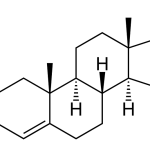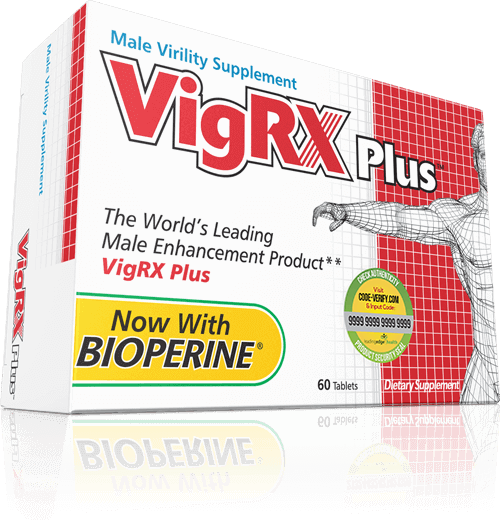Do male enhancement pills affect fertility? Male enhancement pills, which are often classified as supplements, claim to improve performance by boosting testosterone levels, enhancing erections, increasing libido, and more. This might sound like news for couples trying to conceive.
However, there is evidence suggesting that these supplements, along with prescription drugs like Viagra, could have an impact on fertility. It’s important to understand how male enhancement pills can affect fertility and which common ingredients in erectile dysfunction supplements might be harmful or considered safe for sperm health.
Table of Contents
Do male enhancement pills affect fertility?

What exactly are male enhancement pills or supplements?
Male enhancement supplements are designed to enhance blood flow to the penis, helping to achieve and sustain erections while ultimately improving desire and performance. Some formulas also claim to support testosterone levels, which can be beneficial for men experiencing a decrease in libido. The ingredients used vary from herbs like ashwagandha and ginkgo biloba to vasodilators such as sildenafil citrate and tadalafil.
Herbal supplements for male enhancement
A range of supplements are commonly used to enhance sexual performance and pleasure. These include maca root, ginkgo biloba, ashwagandha, and ginseng, among others. While there have been studies supporting the efficacy of herbal supplements, such as a 2003 study linking maca to increased sexual desire in men and a 2012 Korean study demonstrating the effectiveness of panax ginseng in treating erectile dysfunction, it’s important to recognize that not all herbal supplements are equally safe or effective. The Food and Drug Administration (FDA) maintains an updated list of sexual enhancement products that may contain ingredients potentially posing risks or interacting negatively with medications. Unlike medications, herbal supplements do not require FDA approval or scientific evidence to be sold.
Viagra, Cialis and Levitra
Viagra contains sildenafil citrate Cialis contains tadalafil, and Levitra contains vardenafil. These medications fall under the categories of vasodilators and phosphodiesterase 5 inhibitors. By targeting and inhibiting enzymes, they work to widen blood vessels and enhance blood flow to the penis. As a result, users experience improved ease in achieving and maintaining erections.
Reasons for using male enhancement supplement
Individuals commonly turn to enhancement pills to address issues such as decreased desire, low sexual stamina, or erectile dysfunction. According to a study conducted in Saudi Arabia in 2017, it was discovered that 52% of the participants used these medications to address issues of dysfunction. Additionally, 69% of them used these medications recreationally to enhance their erections.
For some individuals, difficulties with libido, erection, or ejaculation not only impact their sexual satisfaction and that of their partner but also their ability to naturally conceive a child. This is because conceiving a child necessitates intercourse and ejaculation. Experts estimate that around half of men face challenges related to sexual desire and a lack of sexual satisfaction. Roughly one out of every six men reports experiencing dysfunction or premature ejaculation, while 10% encounter dysfunction, which refers to the inability to reach orgasm.
Do male enhancement pill influence male fertility?
Male enhancement pills can be beneficial for couples who are struggling with conception due to problems like orgasmic dysfunction. These pills enable them to engage in intercourse until ejaculation occurs. However, it’s crucial to note that certain ingredients found in some enhancement pills may have effects on fertility. This is particularly relevant for medications containing testosterone and PDE5 inhibitors, like Viagra.
Testosterone
Taking testosterone as a means of enhancing performance or pleasure may seem logical since the symptoms associated with testosterone include reduced libido, erectile dysfunction, and decreased energy.
Many men are prescribed testosterone replacement therapy to alleviate these symptoms.
However, it’s important to note that using testosterone or medications that boost testosterone levels can have lasting effects on fertility. A study conducted in 2016 found that anabolic steroids hinder the secretion of follicle-stimulating hormone and luteinizing hormone, both crucial for sperm production.
When these hormones are suppressed, the body’s ability to generate sperm is hindered, resulting in a decrease in sperm count and concentration. Another study involving bodybuilders discovered that decreased fertility was one of the significant long-term negative consequences of testosterone usage over a two-year period.
Regarding dysfunctional medications
Research on the impact of drugs such as Viagra, Cialis, and Levitra on male fertility yields contradictory results. A meta-analysis conducted in 2017 concluded that these PDE5 inhibitors can increase the number of motile and normally-shaped sperm. However, an earlier study from 2007 suggested that while these medications improve sperm movement, they might have an impact on the process of sperm bonding with the egg during fertilization, known as the acrosome reaction.
To ensure the safety and effectiveness of medications like Viagra for treating dysfunction, it is recommended that individuals who are trying to conceive reconsider their usage. This advice particularly applies to those who use these drugs recreationally and can achieve or maintain an erection without them. More research is needed to provide answers on this topic.
Natural supplements for enhancement
Enhancement pills often contain a range of herbs that are believed to have positive effects on sperm health and libido. Research has shown results with herbal supplements.
For example, a 2013 study demonstrated that taking Ashwagandha supplements over three months led to increases in sperm counts by 167%, motility by 57%, and semen volume by 53%. Additionally, ashwagandha was found to enhance the concentrations of testosterone, LH, and FSH in fluid.
Another herb commonly found in enhancement pills is fenugreek. Studies have shown that supplementation with fenugreek can improve testosterone levels by up to 46% after three months. This increase in testosterone has been beneficial for sperm parameters such as count and morphology, as well as boosting libido.
Additionally, a study conducted in 2011 found that maca root powder does not boost libido. It also has a positive impact on sperm count and motility.
To summarize, these male enhancement pills incorporate herbs that have undergone research and exhibit potential for improving sperm health and enhancing libido. Ashwagandha, fenugreek, and maca root powder show promise in this area.
Now let’s delve into the contents of supplements.
It’s important to note that supplements in the United States do not undergo regulation or regular testing, which adds complexity. Periodic assessments have revealed that certain “natural” male enhancement supplements like ExtenZe may contain hormones such as DHEA, which can have long-term effects on sperm count and quality.
Furthermore, the FDA has identified sexual enhancement supplements marketed as “herbal” or “natural” that actually contain ingredients such as sildenafil found in prescription medications for erectile dysfunction. If a supplement works similarly to Viagra, it likely contains Viagra. Although the dosage of these ingredients is likely much lower than in prescription medications, they can still potentially impact fertility, similar to Viagra, Cialis and Levitra.
Ultimately, if you’re considering using enhancement pills to boost your desire or performance, it’s important to be cautious about the ingredients to avoid any potential risks to your fertility. Furthermore, it’s advisable to choose an established brand and steer clear of those mentioned on the FDA’s list of disapproved products.
In addition to opting for supplements that have been scientifically studied and proven effective, it’s crucial to embrace a lifestyle. Our comprehensive guide on enhancing sperm quality provides tips on how to improve both your health and fertility.














